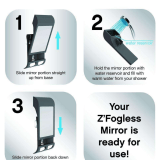
Introduction
41
Your Hyundai vehicle is equipped with
many high technology, electronically
controlled systems that help to
ensure your vehicle operates properly
and provides the performance that
you expect. These systems utilize
computers to monitor the operation of
various systems and components and
help to control their operation. These
computerized system operations are
wide-ranging and involve components
to reduce emissions, to continuously
evaluate the readiness of the airbag
and seat belt pretensioner systems, to
determine when the airbag and seat
belt pre-tensioner systems should be
deployed and then to activate the
deployment, and if equipped, to oper-
ate anti-lock braking, traction control
and electrical stability control to
assist the driver to control the vehicle
in difficult driving situations. These
systems electronically store informa-
tion that is useful to service techni-
cians when they need to diagnose and
repair these systems.
Additional information is stored only
when a crash occurs that results in
the deployment of the airbags or seat
belt pre-tensioners. This type of data
storage is done by devices called
event data recorders(EDR).
After a crash event, the airbag and
seat belt pre-tensioner computer sys-
tem, known as the Supplemental
Restraint System Control Module
(SRSCM) or Airbag Control Unit
(ACU), may record some information
about the condition of the vehicle and
how it was being operated. This infor-
mation consists of data related to seat
belt usage and if there was diagnostic
information in the airbag or seat belt
systems at the time that a crash
occurred, and if the ACU sensed that a
crash of sufficient severity occurred
to require seat belt pre-tensioner or
airbag deployment.
To retrieve this information, special
equipment is needed and access to
the vehicle or the device that stores
the data is required. Hyundai will not
access information about a crash
event or share it with others except:
• in response to an official request of
police or similar government office,
or
• with the consent of the vehicle
owner or, if the vehicle is leased,
with the consent of the lessee, or
• as part of Hyundai’s defense of liti-
gation, or
• as required by law.
VEHICLE DATA COLLECTION AND EVENT DATA RECORDERS






















